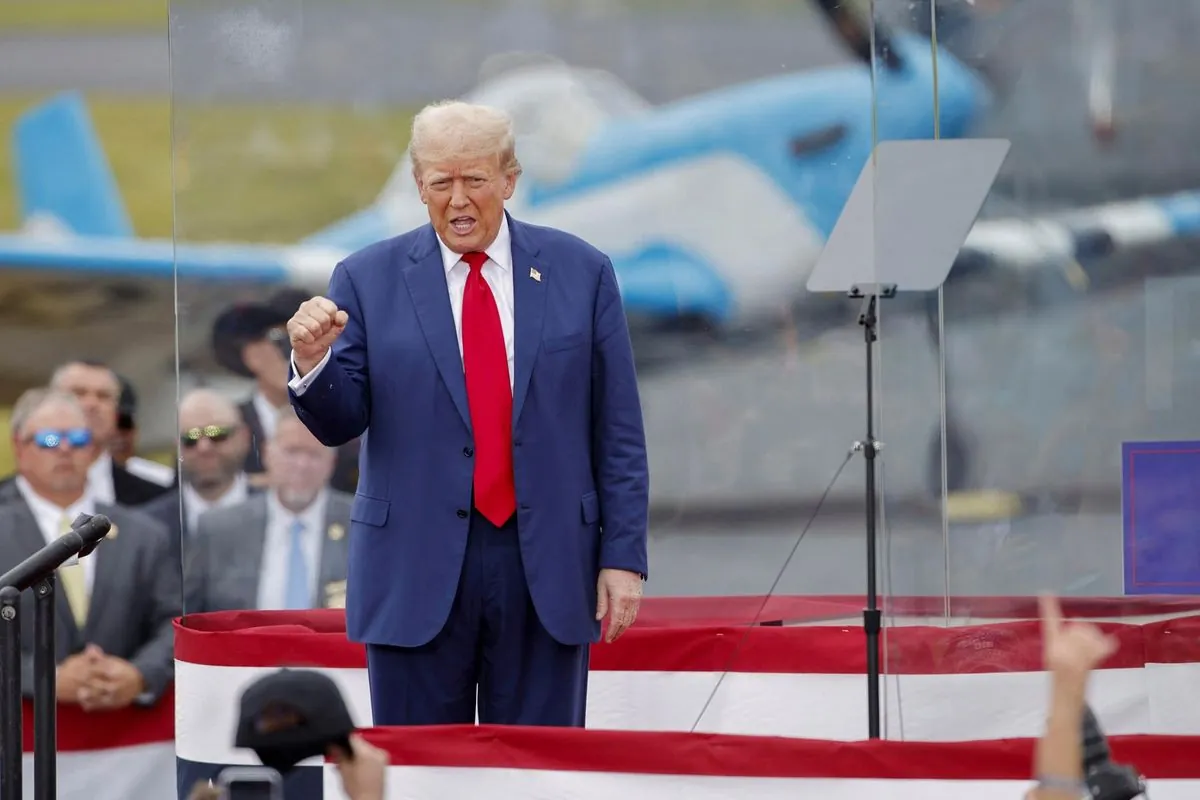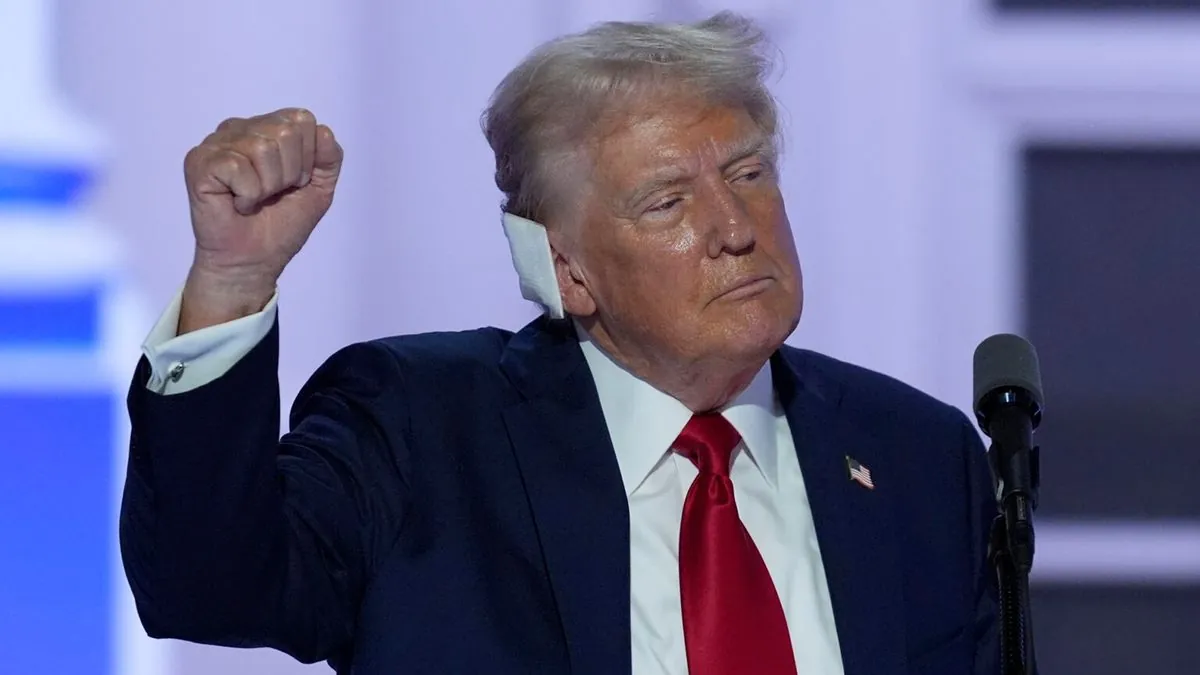Trump's Assassination Attempt: Conspiracy Theories and Campaign Impact
An assassination attempt on Donald Trump has fueled conspiracy theories and reshaped his campaign. The incident's aftermath reveals its impact on supporter mobilization and election narratives.

On July 13, 2024, an assassination attempt on Donald Trump at a rally in Butler, Pennsylvania, dramatically altered the landscape of the presidential campaign. The incident, which occurred just over two months ago, has since become a focal point of Trump's narrative, reshaping his campaign strategy and rhetoric.
In the immediate aftermath, some Trump supporters and campaign staff swiftly pointed fingers at President Joe Biden and Democrats, despite the absence of information about the shooter or motive. This reaction echoes a pattern seen in previous high-profile incidents, where conspiracy theories often emerge rapidly in the absence of concrete information.
The Secret Service, established in 1865 primarily to combat counterfeiting, faced scrutiny for security lapses during the incident. This event marks a significant moment in the agency's history, which began full-time presidential protection following William McKinley's assassination in 1901.
Thomas Matthew Crooks, the 20-year-old shooter, was killed at the scene by a Secret Service sniper. Investigators have yet to identify a clear motive, finding no evidence of ideological or political motivation. This lack of clarity has fueled speculation and conspiracy theories among Trump's supporters.
Trump's response to the attempt evolved over time. Initially, he called for unity and thanked law enforcement. However, in recent weeks, he has increasingly promoted conspiracy theories, including suggestions of an "inside job" by government agencies. This shift in rhetoric aligns with historical patterns following high-profile political violence, reminiscent of the aftermath of the JFK assassination in 1963, which popularized the term "conspiracy theory."

The incident has become a central theme in Trump's campaign imagery. A photo of Trump with a bloodied face has replaced his mug shot as the campaign's defining image, appearing on various merchandise. This imagery, coupled with the "Fight! Fight! Fight!" chant inspired by Trump's words after the shooting, has deepened his connection with supporters.
Trump's frequent retellings of the event serve to strengthen his bond with supporters, creating a shared experience of overcoming adversity. This narrative strategy taps into the power of collective memory and shared struggle, a tactic often employed in political movements.
The assassination attempt has also reignited discussions about political violence in America. Historically, four U.S. presidents have been assassinated: Abraham Lincoln, James Garfield, William McKinley, and John F. Kennedy. The first recorded attempt on a president was against Andrew Jackson in 1835, highlighting the long-standing nature of this threat in American politics.
Researchers studying political violence warn that Trump's emphasis on the shooting could potentially inspire some supporters to resort to violence. This concern is particularly relevant given the current political climate and the approaching election.
"We'll probably never know because there's a reason you call it the deep state. It's very deep. It's very pervasive."
The term "deep state," which originated in Turkey in the 1970s, has become a common refrain among Trump supporters discussing the assassination attempt. This language, coupled with references to historical assassinations, contributes to an atmosphere of suspicion and distrust in official narratives.
As the 2024 election approaches, the impact of this assassination attempt on voter mobilization and potential challenges to election results remains to be seen. The incident has undoubtedly added a new dimension to an already complex political landscape, influencing both campaign strategies and public perception.


































